Alcohol testers, also known as breathalyzers, are essential tools used to measure the blood alcohol concentration (BAC) of an individual through a breath sample. They are widely applied in law enforcement, workplace safety programs, personal use, to prevent alcohol-related risks. With the growing awareness of road safety and stricter regulations across the world, the demand for alcohol breath testers has significantly increased.
Price is one of the most important factors for anyone considering the purchase of an alcohol tester. In the following, we will present a price list of breath alcohol tester. These alcohol testers are hot selling on SISCO Online Shop. By examining the price list closely, buyers can make informed decisions. Whether you are a business owner looking to enhance workplace safety, a driver aiming to stay compliant with traffic laws, or simply someone who values personal responsibility, this guide to alcohol breath analyser prices will provide a clear and practical reference before making a purchase.
SISCO Alcohol Tester Price List:
| Product | SKU | Test Range | Weight | Price |
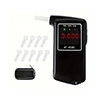 |
SISCO-AT-858S | 0.00-0.19% BAC, 0-1.99‰ BAC (g/L), 0-0.995 mg/L, 0-199 mg/100 mL. | 76g | $63.89 |
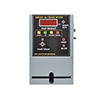 |
SISCO-AT-819 | 0.000~2.000mg/L, 0.000~0.400% BAC, 0.000~2.000%. BAC, 0.000 ~4.000g/Ld | 9kg | $646.87 |
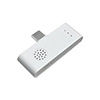 |
SISCO-AT-12B1 | 0-190mg/100mL | 50g | $54.89 |
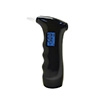 |
SISCO-AT-65S | 0.1-0.19% BAC, 0.0-1.9g/L | 65g | $26.98 |
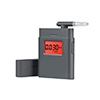 |
SISCO-AT-838 | 0.1-0.199% BAC, 0.0-1.9g/L | 76g | $26.98 |
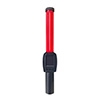 |
SISCO-AT-ZM2100 | 0-220mg/ 100ml (0-1.000mg/L) | 300g | $139.59 |
Note: The above price list is for reference only.
What factors can affect the accuracy of alcohol testers?
One of the primary factors affecting BAC tester accuracy is the type and quality of the device. Professional-grade fuel cell breathalyzers, often used by law enforcement, are generally more accurate than semiconductor-based consumer models. Fuel cell sensors can distinguish alcohol from other substances more effectively and are less prone to interference. In contrast, lower-cost models may suffer from calibration drift and sensitivity to non-alcohol compounds, such as acetone in the breath of diabetics, which can lead to false positives.
Another factor is residual mouth alcohol. Alcohol present in the mouth or upper airway, caused by recent drinking, use of mouthwash, cough syrups, or even breath sprays, can temporarily inflate readings. This is because the tester detects alcohol vapor directly from the mouth rather than the deep lung air that more accurately reflects blood alcohol concentration. For this reason, it is generally recommended to wait at least 15 to 20 minutes after consuming alcohol or using alcohol-containing products before testing.
Environmental conditions also impact results. Temperature and humidity can affect sensor performance, especially in semiconductor-based devices. Extreme cold or hot weather may cause inaccurate readings, while high humidity can dilute alcohol vapor concentration. Similarly, external contaminants like smoke, chemical fumes, or strong cleaning agents may interfere with the sensor, producing misleading results.
Lastly, operator error should not be overlooked. Improper use, such as not blowing long enough, incorrect positioning of the mouthpiece, or failing to follow device instructions, can lead to faulty measurements. Training and consistent testing procedures are vital to minimize these errors, especially in law enforcement and workplace environments.
Are alcohol testers safe for repeated use?
Alcohol testers are generally safe for repeated use as long as they are handled properly and maintained according to manufacturer instructions. These devices are designed to measure blood alcohol concentration (BAC) through breath analysis, using sensors such as semiconductor or fuel cell. Since they are non-invasive and only require a person to exhale into the device, there is no risk of physical harm or exposure to harmful substances. However, hygiene is an important factor when using alcohol testers repeatedly. Some models come with disposable mouthpieces or replaceable tips to prevent the spread of bacteria and ensure safe use among multiple individuals. For personal testers, regularly cleaning the mouthpiece with alcohol wipes or using replacements enhances safety.
Conclusion:
For individuals, a reliable and affordable BAC alcohol tester can provide peace of mind during social occasions, ensuring safer driving decisions. For companies, investing in mid- to high-range testers can support workplace safety programs and reduce liability risks.
When purchasing an alcohol tester, the best approach is to balance affordability with accuracy, reliability, and intended use. Ultimately, alcohol breath testers are more than just a product; they are tools that promote safety, prevent accidents, and encourage responsible drinking. Investing in the right device not only ensures compliance but can also save lives, making the cost worthwhile.

